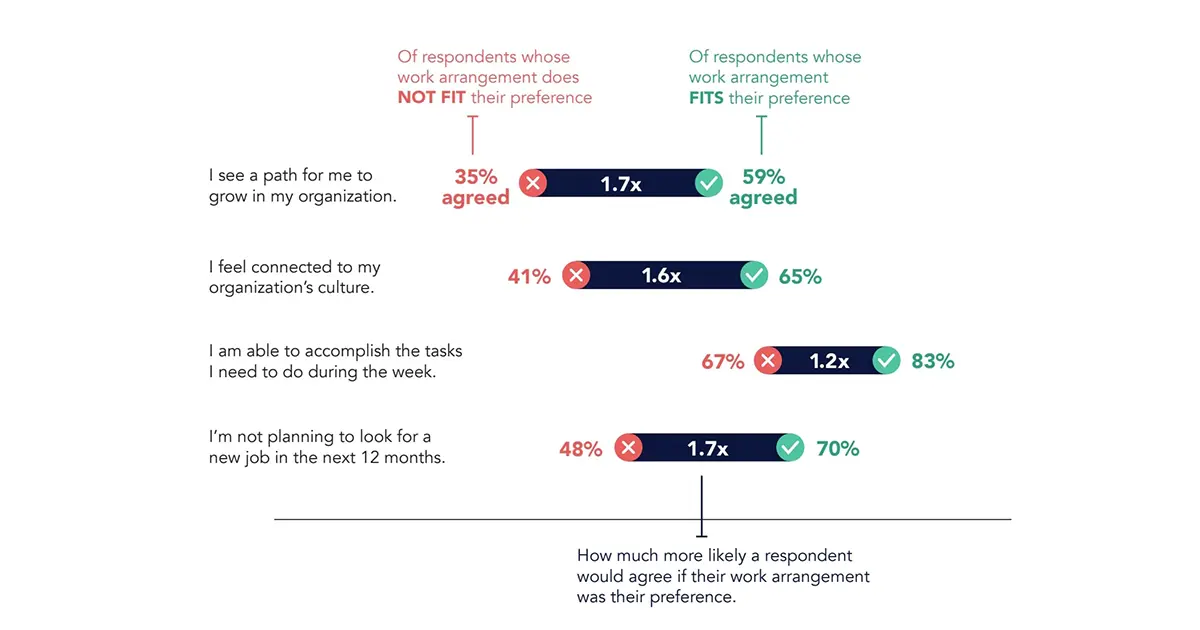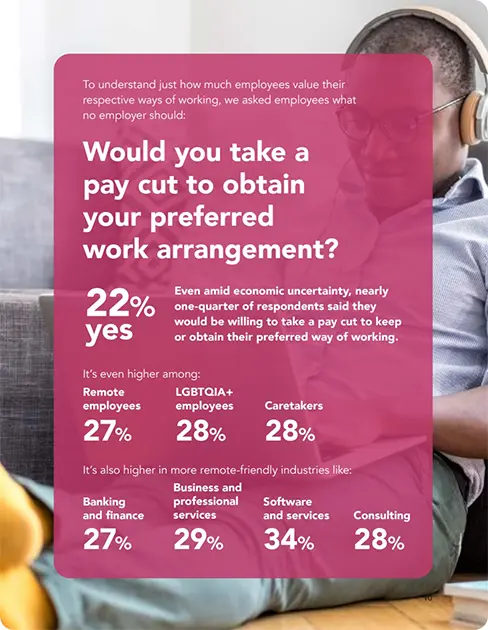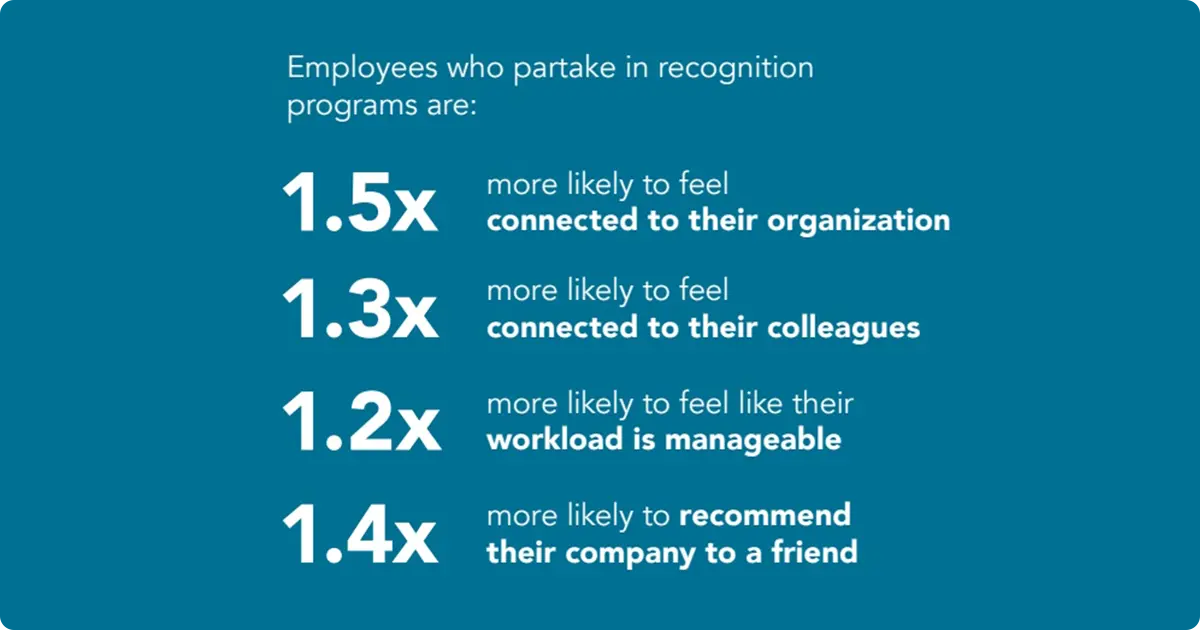How to Build a Strong Hybrid Work Culture: Proven Strategies that Work

The shift towards a hybrid work culture is reshaping how businesses function, merging remote and in-office work to foster a flexible, dynamic environment.
With 40% of employees settling into a hybrid workplace, understanding and embracing hybrid teams has become crucial for maintaining productivity, employee satisfaction, and a strong company culture.
Explore the intricacies of hybrid workplace culture and its growing significance in shaping today's business environment.
How does a hybrid work model impact your company culture?
Hybrid work, a flexible model supporting a blend of in-office, remote, and on-the-go workers, significantly influences how an organization runs.
Hybrid work transforms company culture by creating a dynamic environment that requires intentional efforts to maintain cohesion amongst teams. It fosters flexibility and autonomy, leading to higher employee satisfaction and retention.
However, it can also pose challenges in ensuring consistent communication and inclusivity. Let's look at some of the benefits and potential challenges that a hybrid work model presents.
Work-life balance and mental health
Benefits:
- Hybrid work arrangements, supported by a well-structured hybrid remote work schedule, can improve the mental health of employees. The flexibility to balance in-office and remote days helps reduce commute times and provides more personal time, promoting a healthier work-life balance.
Employees, especially working parents, are seeking more flexibility to balance their career and family obligations.
Challenges:
- While hybrid work can improve work-life balance for many, it can also blur the boundaries between work and personal life. Employees may struggle to disconnect from work, leading to burnout and decreased mental health. In our "The Evolution of Work" report, hybrid workers reported higher stress levels due to the challenges of managing their work in different settings and the potential for an 'always-on' mentality.
Download our exclusive report, The Evolution of Work: The Value of an Employee-First Culture, and uncover invaluable insights into what your employees need to cultivate a thriving workplace.
Employee satisfaction and productivity
Benefits:
The autonomy and choice provided by hybrid work models boost employee satisfaction. Research from Workhuman iQ found that employees whose work arrangements fit their preferences are 1.6 times more likely to feel connected to their organization’s culture and 1.2 times more likely to accomplish their weekly tasks.

Challenges:
- Ensuring fairness in opportunities for career growth and recognition can be more complex in a hybrid model. Hybrid and remote employees may feel they’re being overlooked for promotions or special projects compared to their in-office counterparts. This perception of unfairness can erode trust and negatively impact the company culture.
Collaboration and interaction
Benefits:
- Hybrid work models can enhance collaboration by making in-office time more purposeful. When employees are in the office, they focus on collaborative tasks, team building, and face-to-face interactions, making these moments more valuable and productive.
Challenges:
- Hybrid work can lead to inconsistent communication, making it difficult to ensure everyone feels included and informed. Miscommunication or lack of information can create misunderstandings and reduce the sense of unity within the team.
Inclusivity and trust
Benefits:
- Hybrid work promotes inclusivity by accommodating diverse working styles and personal needs. It allows organizations to tap into a broader talent pool, including those who may not be able to relocate or commute daily.
- This flexibility supports a diverse workforce and can lead to a more innovative and creative environment. 28% of LGBTQIA+ employees would take a pay cut to maintain their preferred work arrangement, highlighting the importance of flexibility.

Challenges:
- Hybrid models can inadvertently create a divide between in-office and remote employees. Remote employees might feel excluded from spontaneous discussions and decisions made in the office, leading to feelings of isolation and being undervalued. This divide can weaken your company's overall sense of community and belonging.
Company values
Benefits:
- Successfully implementing a hybrid work model requires companies to articulate and reinforce their values and purpose. This focus on shared goals and vision strengthens company culture and employee alignment with organizational objectives.
Challenges:
- Building and maintaining a cohesive company culture is more challenging in a hybrid environment. Employees may feel less connected to the organization and their colleagues, which can impact morale and engagement. Cultural fragmentation can occur, with different groups of employees developing their own norms and behaviors.
Addressing these challenges requires intentional strategies and consistent effort. Leaders must prioritize clear communication, inclusivity, and fairness and provide the necessary tools and support to ensure all employees feel valued and connected to the organization regardless of their work location.
11 practical strategies to cultivate a robust culture in the new hybrid workplace
In the evolving landscape of hybrid work, creating a strong company culture is more important than ever. As employees navigate a blend of remote, in-office, and on-the-go work, organizations must adopt intentional strategies to ensure everyone feels connected, valued, and engaged. Here are proven strategies to cultivate a robust culture in the new hybrid workplace.
1. Focus on consistent communication
Regular check-ins and transparent communication are crucial in a hybrid environment. According to Workhuman® iQ, employees who have weekly check-ins with their managers are 43% more engaged than those who do not.
Schedule consistent meetings to discuss goals, progress, and any challenges. Use various communication tools to ensure everyone stays connected and informed, fostering a sense of belonging at work and alignment within the team.
2. Promote human connection
Human connection is the heartbeat of your business, especially in a hybrid work environment.
Research from our "type: asset-hyperlink id: 5o2iWvVboAkt9GZ3mNvza3" report found that less human connection can lead to hybrid workers feeling more anxious, isolated, overwhelmed, and less motivated.
Ensuring employees feel connected wherever they are is crucial for maintaining a strong workplace culture. Here are some strategies to foster human connection:
- Virtual happy hours or lunches: These events are great for off-the-clock connection-building. They provide opportunities for team members to interact in a relaxed setting, fostering stronger personal relationships.
- Mentor-mentee programs: Pair newly hired employees with veteran staff to help them integrate and understand the company culture. Matching remote or dispersed employees with those in the office can also fuel unlikely bonds and create a more cohesive team.
- Employee resource groups (ERGs): Form networks of employees with shared experiences, characteristics, or goals to build authentic relationships. ERGs created by and for your people improve company culture while building camaraderie.
By doubling down on human connection, you can create a supportive and engaging work environment that transcends physical locations and strengthens your organization's culture.
3. Promote work-life balance
Support employees in maintaining a healthy work-life balance by promoting flexible working arrangements and encouraging them to take regular breaks and time off. In a hybrid setting, ensure that both in-office and remote employees have access to resources and programs focused on mental and physical wellbeing, such as wellness initiatives, access to mental health support, and fitness programs.
4. Offer training and development
Continuous learning is crucial for employee growth and engagement in a hybrid work culture. Offer a variety of training programs, workshops, and online courses to help employees enhance their skills and advance their careers, regardless of their work location.
Ensure that career development opportunities are accessible to both remote and in-office employees, leveraging technology to bridge the gap. Providing equitable access to training ensures all team members feel supported and valued, which is essential for maintaining a strong and cohesive hybrid work environment.
5. Celebrate successes and milestones
Implement a robust recognition program to recognize and celebrate individual and team achievements and significant milestones, regardless of where employees are located. Recognition can be formal, such as awards and bonuses, or informal, like shout-outs in team meetings.
Use virtual platforms to hold celebrations and acknowledgments, ensuring that remote workers feel included and appreciated.
Consistently acknowledging contributions boosts morale and fosters a positive work environment. Our research found that employees who feel recognized are 1.4 times more likely to recommend their company to a friend.

6. Support cross-functional collaboration
Promote collaboration across different teams and departments to break down silos and encourage innovation. Create opportunities for employees to work on cross-functional projects and initiatives, using technology to facilitate collaboration between remote and in-office workers. This approach fosters a sense of unity and shared purpose, which is essential for a strong hybrid workplace culture.
7. Incorporate flexible policies
Develop policies that accommodate various work preferences, balancing flexibility with accountability. Allow employees to choose their work arrangements, whether remote, in-office, or hybrid, based on their roles and personal needs.
Flexibility enhances job satisfaction and retention. A significant portion of employees, including 27% of remote workers, would take a pay cut to maintain their preferred work arrangement, highlighting the value placed on flexibility.
8. Provide ample technology resources
Equip employees with the tools and platforms to collaborate effectively, regardless of location. Ensure reliable access to communication and project management tools and provide training on how to use them. Technology should facilitate seamless collaboration and productivity.
9. Encourage regular feedback
Create channels for regular feedback to understand employee needs and improve the work environment. Conduct surveys, hold one-on-one meetings, and encourage open discussions about what is working and what isn’t. Act on feedback to show employees their opinions are valued and lead to meaningful change.
10. Create a culture of trust
Empower employees by trusting them to manage their work and deliver results. Avoid micromanagement and focus on outcomes rather than processes. Trust fosters a sense of autonomy, respect, and responsibility, which are crucial for a thriving hybrid work culture. Hybrid workers with a say in their work arrangement report lower stress levels and higher job satisfaction.
11. Embrace failing forward
With hybrid work being a relatively new approach for many organizations, some strategies may not have the intended results. Leaders must be open to the idea of "failing forward" – learning from mistakes and making necessary adjustments.
By acknowledging this and ensuring your organization knows you will adjust and try again, you create a culture of authenticity and vulnerability where your employees will feel supported and psychologically safe.
Conclusion
Fostering a robust hybrid workplace culture is essential for modern businesses navigating the blend of remote and in-office work. By implementing intentional strategies, such as consistent communication, promoting human connection, and encouraging work-life balance, organizations can create an environment where all employees feel valued and engaged.
Embracing the evolving hybrid work model with flexibility and trust ensures that your company culture remains strong and cohesive, driving productivity and satisfaction across the board.
About the author
Ryan Stoltz
Ryan is a search marketing manager and content strategist at Workhuman where he writes on the next evolution of the workplace. Outside of the workplace, he's a diehard 49ers fan, comedy junkie, and has trouble avoiding sweets on a nightly basis.